Ditapis dengan
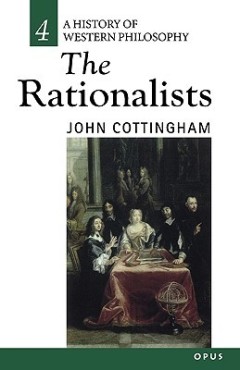
The Rationalists
The seventeenth century saw a major revolution in our ways of thinking about such issues as the method appropriate to philosophy and science, the relation between mind and body, the nature of substance, and the place of humanity in nature. While not neglecting the lesser but still influential figures, such as Arnauld and Malebranche, John Cottingham focuses primarily on the three great "rationa…
- Edisi
- -
- ISBN/ISSN
- 0192891901
- Deskripsi Fisik
- xii + 234 pg.; 19,5 cm.
- Judul Seri
- A History of Western Philosophy 4
- No. Panggil
- 149.7 COT r

Pendidikan dan Mass Media Di Zaman Modern
- Edisi
- -
- ISBN/ISSN
- 9798203496
- Deskripsi Fisik
- iv + 69 hlm.; 20 cm.
- Judul Seri
- -
- No. Panggil
- 070.449 TON p
- Edisi
- -
- ISBN/ISSN
- 9798203496
- Deskripsi Fisik
- iv + 69 hlm.; 20 cm.
- Judul Seri
- -
- No. Panggil
- 070.449 TON p
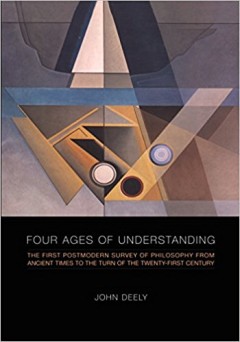
Four Ages of Understanding: The First Postmodern Survey of Philosophy From An…
This book redraws the intellectual map and sets the agenda in philosophy for the next fifty or so years. By making the theory of signs the dominant theme in Four Ages of Understanding, John Deely has produced a history of philosophy that is innovative, original, and complete. The first full-scale demonstration of the centrality of the theory of signs to the history of philosophy, Four Ages of U…
- Edisi
- -
- ISBN/ISSN
- 0802047351
- Deskripsi Fisik
- xxxiii + 1019.; 25,5 cm.
- Judul Seri
- -
- No. Panggil
- 190 DEE f
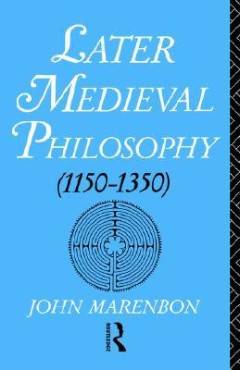
Later Medieval Philosophy (1150-1350): An Introduction
This introduction to philosophy in the Latin West between 1150 and 1350 follows on from John Marenbon's previous book, Early Medieval Philosophy 480-1150 (Routledge & Kegan Paul, 1983). It combines an historical approach, which concentrates on the sources, forms and backgrounds of the medieval works, with philosophical analysis of thirteenth- and fourteenth-century writing in terms comp…
- Edisi
- -
- ISBN/ISSN
- 0710202865
- Deskripsi Fisik
- xii + 230 pg.; 22,5 cm.
- Judul Seri
- -
- No. Panggil
- 189 MAR l
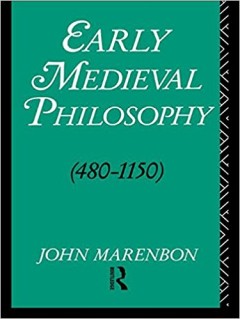
Early Medieval Philosophy (480-1150): An Introduction
Compact but singularly well thought out material of a theological, logical, poetic as well as philosophical nature.
- Edisi
- -
- ISBN/ISSN
- 04150070X
- Deskripsi Fisik
- xv + 197 pg.; 21,5 cm.
- Judul Seri
- -
- No. Panggil
- 189 MAR e

Psikologi Belajar dan Ilmu Filsafat Ilmu Karl Popper
Buku ini membahas tentang unsur-unsur baru dalam psikologi popper,metodologi,standar sains menurut popper,upaya popper membebaskan metodologi dari psikologi,sejatah interaksi antara psikologi belajar dan filsafat ilmu,fallibilisme versus teori stimulus-respon,situasi permasalahan mutakhir.
- Edisi
- -
- ISBN/ISSN
- 9799440343
- Deskripsi Fisik
- xxii + 203 hlm.; 21 cm.
- Judul Seri
- -
- No. Panggil
- 190 BER p.a

Dimensions of Ethical Thought
- Edisi
- -
- ISBN/ISSN
- 0820405906
- Deskripsi Fisik
- x + 289 pg.; 23 cm.
- Judul Seri
- -
- No. Panggil
- 170 DIM d
- Edisi
- -
- ISBN/ISSN
- 0820405906
- Deskripsi Fisik
- x + 289 pg.; 23 cm.
- Judul Seri
- -
- No. Panggil
- 170 DIM d
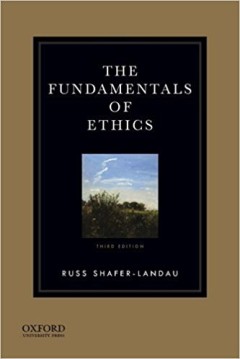
Fundamentals of Ethics
In The Fundamentals of Ethics, Third Edition, author Russ Shafer-Landau employs a uniquely engaging writing style to introduce students to the essential ideas of moral philosophy. Offering more comprehensive coverage of the good life, normative ethics, and metaethics than any other text of its kind, this book also addresses issues that are often omitted from other texts, such as the doctrine of…
- Edisi
- -
- ISBN/ISSN
- 0198246838
- Deskripsi Fisik
- x + 163 pg.; 21,5 cm.
- Judul Seri
- -
- No. Panggil
- 170 FIN f
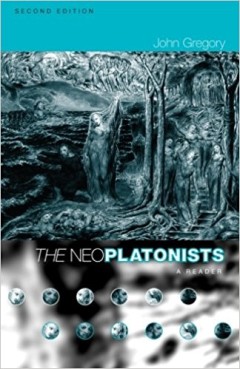
The Neoplatonists: A Reader
- Edisi
- Second Edition
- ISBN/ISSN
- 0415187842
- Deskripsi Fisik
- viii + 189 pg.; 21,5 cm.
- Judul Seri
- -
- No. Panggil
- 186.4 GRE n
- Edisi
- Second Edition
- ISBN/ISSN
- 0415187842
- Deskripsi Fisik
- viii + 189 pg.; 21,5 cm.
- Judul Seri
- -
- No. Panggil
- 186.4 GRE n
 Karya Umum
Karya Umum  Filsafat
Filsafat  Agama
Agama  Ilmu-ilmu Sosial
Ilmu-ilmu Sosial  Bahasa
Bahasa  Ilmu-ilmu Murni
Ilmu-ilmu Murni  Ilmu-ilmu Terapan
Ilmu-ilmu Terapan  Kesenian, Hiburan, dan Olahraga
Kesenian, Hiburan, dan Olahraga  Kesusastraan
Kesusastraan  Geografi dan Sejarah
Geografi dan Sejarah